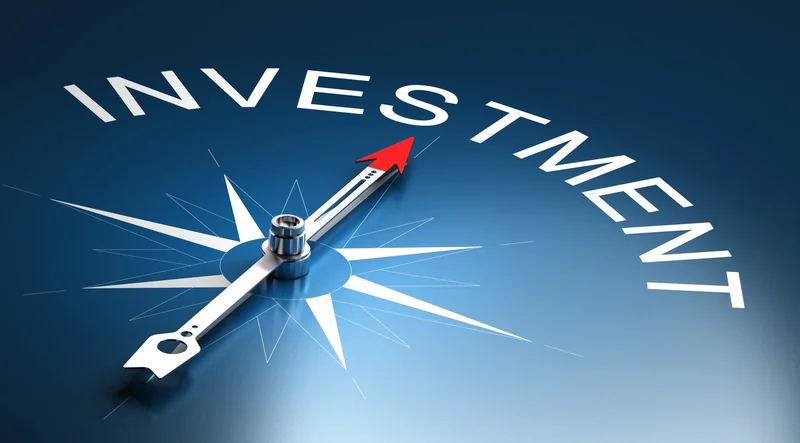Best Investments for 2025: A Data-Driven Breakdown of Top Performers vs. Overhyped Alternatives
Everyone's chasing AI. The data shows they're looking in the wrong place.
It’s the only conversation anyone wants to have. At dinners, on calls, even in line for coffee—the talk always turns to artificial intelligence. It’s the theme of our time, the narrative that has captured trillions in corporate spending and even more in market capitalization. You can almost hear the low hum of the servers in Google’s new $4 billion data center in Arkansas, a tangible monument to the sheer scale of the capital being deployed. AI feels inexorable, a force of nature reshaping the global economy.
As an investment thesis, it seems bulletproof. But I always feel a familiar sense of unease when a story becomes this pervasive. I’ve seen this before. Twenty-five years ago, the theme was the Internet. The story was right—it fundamentally changed our lives—but the market got the timing and the valuation disastrously wrong. Thematic investing is a siren’s song. It lures you in with a compelling narrative, but the rocks of market reality are always lurking beneath the surface.
My colleague Dan Sotiroff calls it a “trifecta bet.” For a thematic investment to pay off, you have to be right three times: first, that the theme itself will succeed; second, that the specific companies you choose will be the ones to profit from it; and third, that their stock prices don't already reflect that success. That’s a staggeringly high bar. And when we look at the hard data on how these themes have actually performed, the story starts to fall apart.
Deconstructing the Hype
To get a clear picture, we can look at a set of benchmarks Morningstar created last year: 15 Thematic Consensus Indexes. These track the stocks most commonly held by funds and ETFs targeting specific themes, from AI and Big Data to Wellness and Battery Technology. They provide a clean, data-driven look at what’s working and what isn’t.
The first takeaway is a lesson in humility. Over the past five years, the performance is a near-perfect coin flip. Seven of the themes managed to outperform the broad global stock market, while seven underperformed. (One, Nano Technology, lacked sufficient history). So much for the idea that latching onto a powerful growth trend is a surefire path to beating the market. It’s not.
But here’s the part of the data that I find genuinely puzzling, the detail that unravels the entire AI-centric narrative. The Investment Themes That Are Outperforming AI weren't what you’d expect. The Morningstar Global Artificial Intelligence + Big Data Consensus Index wasn't the top performer. It was beaten by two other themes: Future Mobility and Robotics & Automation.
At first glance, this seems like a revelation. Are autonomous vehicles and automated factories a better bet than AI? Not at all. When you dissect the composition of those indexes, the real driver becomes painfully obvious: Nvidia. The company’s astronomical gain of more than 1,200% over the past five years is the engine behind the outperformance of all three themes. Its technology is fundamental to AI, but it’s also critical for autonomous systems and robotics. Buying these themes wasn't a sophisticated bet on different sectors of the economy. It was, in large part, just different ways to buy the same rocket ship.

This is like judging the quality of a national pizza chain based on a single franchise location that happens to have a Michelin-star chef. The success of that one outlier tells you nothing about the underlying quality of the other 99% of the business. If your "thematic" portfolio's success hinges on the performance of a single, mega-cap stock, are you really investing in a broad, world-changing theme? Or are you just making a highly concentrated, leveraged bet on a company you probably already own in your Fidelity or Vanguard index fund?
The Hidden Correlations in a Good Story
The risks become even clearer when you look at the themes that failed. Take Battery Technology. The story is impeccable. The global energy transition, the rise of electric vehicles, our dependence on portable devices—it all requires massive advancements in energy storage. It seems like one of the best investments for 2025 and beyond. Yet, the index has been a dud. Why? Because it’s heavily weighted toward lithium producers, a sector that has been decimated by a collapse in commodity prices (a direct result of a global supply glut). The beautiful story crashed headfirst into the brutal, cyclical reality of the materials market.
This exposes the fatal flaw in narrative-driven investing: the world is infinitely more complex than a marketing brochure. A good story doesn't protect you from policy changes, which have weighed on the Life Sciences and Wellness themes. It doesn't protect you from supply-and-demand shocks.
Worse yet, many of these themes don't even offer the diversification that investors might be seeking when looking for alternative investments. The tech sector now accounts for over a quarter of the global equities market. In the U.S. market, it’s about one-third—to be more exact, just over 33%. It's no surprise, then, that the correlations between many of these tech-heavy thematic indexes and the broad market are incredibly high. The Robotics & Automation index has a 0.96 correlation to the global market. The Fintech index is at 0.95.
This means that when you add these funds to your Roth IRA or brokerage account, you’re not really diversifying. You’re just doubling down on the same factor exposure—large-cap growth—that already dominates your portfolio. You’re taking on more concentration risk under the illusion of exploring a new frontier. What, precisely, is the portfolio construction benefit when the new asset moves in near-perfect lockstep with your existing ones? Is this a prudent strategy, or is it just a complicated way to chase last year's winners?
It's All Just One Trade
Let’s be clear. Thematic investing, as it’s currently packaged and sold, is largely a marketing exercise. It takes the market’s biggest, most successful companies—the Nvidias, the Microsofts, the Googles—and wraps them in a compelling story about the future. But the data is unambiguous: you’re often not buying a diversified basket of revolutionary upstarts. You’re buying a repackaged, higher-fee version of the Nasdaq 100.
The search for growth is understandable, but chasing narratives is a flawed strategy. The real work of investing isn't about identifying the most exciting story. It's about conducting rigorous, bottom-up analysis of individual businesses and understanding the price you're paying for their future growth. Many of the true innovators at the heart of these themes, like OpenAI and Stripe, remain private, inaccessible to public investors anyway.
For most people, the conclusion is simple. You already have exposure to AI, to fintech, and to the energy transition through any broad-market index fund. Adding a thematic ETF on top is more likely to be an act of performance chasing than a prudent investment decision. The data shows these themes are not distinct, uncorrelated opportunities. Right now, they’re all just one trade.
-

Warren Buffett's OXY Stock Play: The Latest Drama, Buffett's Angle, and Why You Shouldn't Believe the Hype
Solet'sgetthisstraight.Occide...
-

The Great Up-Leveling: What's Happening Now and How We Step Up
Haveyoueverfeltlikeyou'redri...
-

The Future of Auto Parts: How to Find Any Part Instantly and What Comes Next
Walkintoany`autoparts`store—a...
-

Applied Digital (APLD) Stock: Analyzing the Surge, Analyst Targets, and Its Real Valuation
AppliedDigital'sParabolicRise:...
-

Analyzing Robinhood: What the New Gold Card Means for its 2025 Stock Price
Robinhood's$123BillionBet:IsT...
- Search
- Recently Published
-
- DeFi Token Performance & Investor Trends Post-October Crash: what they won't tell you about investors and the bleak 2025 ahead
- Render: What it *really* is, the tech-bro hype, and that token's dubious 'value'
- APLD Stock: What's *Actually* Fueling This "Big Move"?
- Avici: The Real Meaning, Those Songs, and the 'Hell' We Ignore
- Uber Ride Demand: Cost Analysis vs. Thanksgiving Deals
- Stock Market Rollercoaster: AI Fears vs. Rate Hike Panic
- Bitcoin: The Price, The Spin, & My Take
- Asia: Its Regions, Countries, & Why Your Mental Map is Wrong
- Retirement Age: A Paradigm Shift for Your Future
- Starknet: What it is, its tokenomics, and current valuation
- Tag list
-
- Blockchain (11)
- Decentralization (5)
- Smart Contracts (4)
- Cryptocurrency (26)
- DeFi (5)
- Bitcoin (31)
- Trump (5)
- Ethereum (8)
- Pudgy Penguins (6)
- NFT (5)
- Solana (5)
- cryptocurrency (6)
- bitcoin (7)
- Plasma (5)
- Zcash (12)
- Aster (10)
- nbis stock (5)
- iren stock (5)
- crypto (7)
- ZKsync (5)
- irs stimulus checks 2025 (6)
- pi (6)
- hims stock (4)
- kimberly clark (5)
- uae (5)
